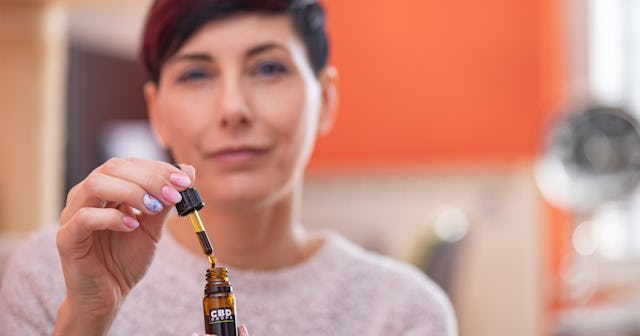Poll Parents Knowing Difference CBD and Marijuana

And 80% of parents say they know little or nothing about CBD products
It’s hard to keep up with the changing lingo and trends of today’s teens. And if you don’t know the latest TikTok fad or YouTube Challenge, we don’t blame you. But according to a new report, over a third of parents admit that they don’t know the difference between CBD and marijuana, and think they’re the same — which is a problem for everybody.
According to C.S. Mott Children’s Hospital National Poll on Children’s Health at the University of Michigan Health, around 80% of parents say they know nothing or very little about CBD or CBD products. The poll asked 1,992 parents across the country with children ranging in age from 3 to 18 years old, and 35% said they thought that CBD and marijuana were either the same thing or very similar.
So, first off: this isn’t true and it’s important for parents to understand the difference.
As the report explained, CBD stands for cannabidiol, which is chemical compound found naturally in marijuana and hemp, and is available in a range of products including oils, balms and gummies. These products, which kids can take or use, and are sold online and across stores like supermarkets and drugstores, without a prescription. That’s because unlike marijuana, CBD must have less than 0.3% of tetrahydrocannabinol, otherwise known as THC, in order to be legal. Marijuana contains high concentrations of this psychoactive substance, which is what causes the “high” feeling. And according to the study, although most CBD products have less than .3% of THC, many claim to contain close to 0.0%.
In other words: CBD is a supplement that can’t get you or your kid high. But it may come with other health risks or benefits.
CBD usage for kids or adults is different than medical marijuana. Although there has been limited research on the effects of CBD and children, some potential benefits for kids include reducing anxiety as well as pain and inflammatory diseases, Jennifer Griffith, an assistant professor of neurology and pediatrics in the division of pediatric neurology at Washington University School of Medicine in St. Louis and St. Louis Children’s Hospital, told CNN.
Of the parents polled, 71% said they’ve never tried CBD themselves but 73% think these products could be a good option for kids when other medications don’t work. However, currently most CBD products aren’t regulated by the US Food and Drug Administration. But 83% of parents polled think it should be and 58% of parents said FDA approval would be an important factor when deciding whether to give any CBD product to their kid. At the time of the poll, 90% of parents also said they’d never given or even considered giving CBD to their child.
Of the parents who have given their child CBD products, the most common reasons include anxiety, sleep problems, ADHD, muscle pain, autism and to make their child feel better overall. However, as the study noted, “It’s important for parents to inform their pediatrician or other healthcare providers about use of CBD products so that any potential side effects can be addressed.”
It’s also equally important for parents considering CBD for their children to first talk to their child’s pediatrician or healthcare provider. And it doesn’t matter where you stand on the use of CBD for kids, the bottom line is that parents need to at least understand the difference between it and marijuana — especially since it’s legal and something kids or teens can easily buy on their own (not to mention that it could also potentially benefit some stressed-out moms or dad).
The bottom line is to always take to your kids’ doctor about any health concerns you have about them and about any supplements you’re thinking about trying. And also be sure to educate yourself when you can — you never know when you’ll get polled.